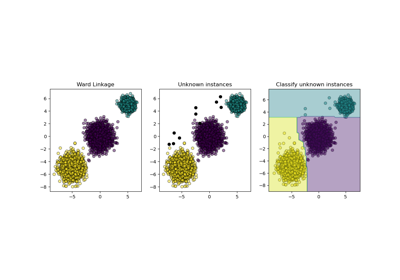sklearn.utils.validation.check_is_fitted¶
- sklearn.utils.validation.check_is_fitted(estimator, attributes=None, *, msg=None, all_or_any=<built-in function all>)[source]¶
Perform is_fitted validation for estimator.
Checks if the estimator is fitted by verifying the presence of fitted attributes (ending with a trailing underscore) and otherwise raises a NotFittedError with the given message.
If an estimator does not set any attributes with a trailing underscore, it can define a
__sklearn_is_fitted__method returning a boolean to specify if the estimator is fitted or not.- Parameters:
- estimatorestimator instance
Estimator instance for which the check is performed.
- attributesstr, list or tuple of str, default=None
Attribute name(s) given as string or a list/tuple of strings Eg.:
["coef_", "estimator_", ...], "coef_"If
None,estimatoris considered fitted if there exist an attribute that ends with a underscore and does not start with double underscore.- msgstr, default=None
The default error message is, “This %(name)s instance is not fitted yet. Call ‘fit’ with appropriate arguments before using this estimator.”
For custom messages if “%(name)s” is present in the message string, it is substituted for the estimator name.
Eg. : “Estimator, %(name)s, must be fitted before sparsifying”.
- all_or_anycallable, {all, any}, default=all
Specify whether all or any of the given attributes must exist.
- Raises:
- TypeError
If the estimator is a class or not an estimator instance
- NotFittedError
If the attributes are not found.


